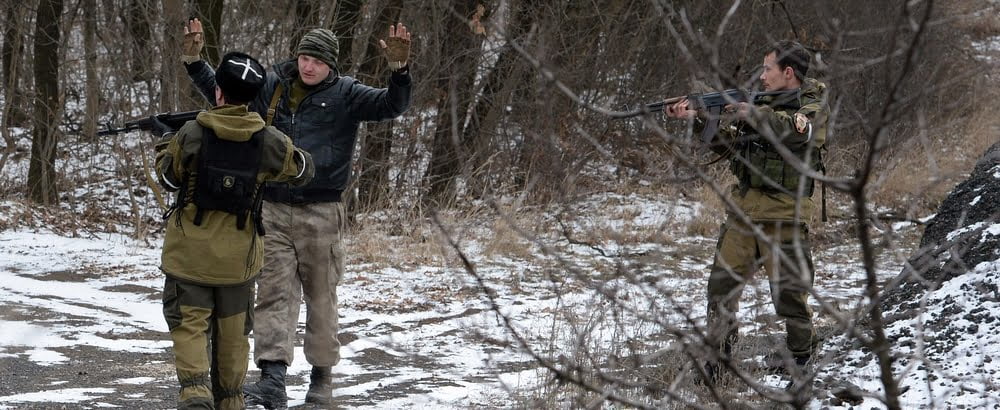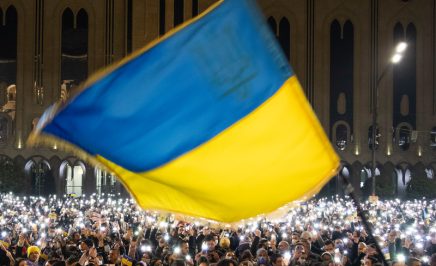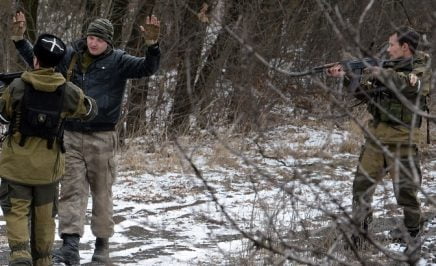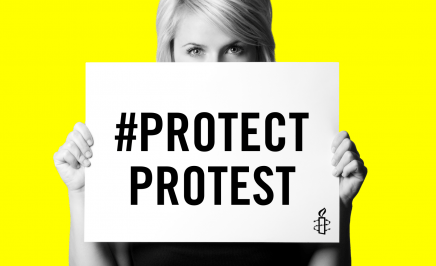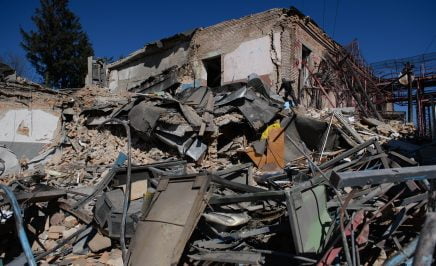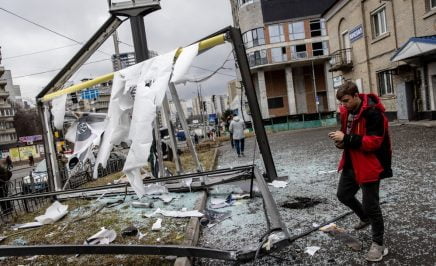European allies are trying to deter a potential invasion of Ukraine by Russian forces which are currently massed at the border, as a result tensions between the North Atlantic Treaty Organisation (NATO) and Russia have risen to their highest level in years.
Russia currently has approximately 130,000 troops on the Ukraine border. Russia has not confirmed that it will launch an attack however, based on the lack of respect for international law by Russian troops in other settings in recent years, Amnesty International is extremely concerned about the likelihood of history repeating itself.
“The threat of the use of military force by Russia is already affecting the human rights of millions of people in Ukraine and beyond,” said Agnès Callamard, Amnesty International’s Secretary General.
“The consequences of actual military force are likely to be devastating. Ukraine’s recent history is punctuated by conflicts involving Russian troops in Donbas and the illegal annexation of Crimea. These episodes have torn communities and lives apart, as military forces have trampled on the rights of civilians with impunity; it’s time to break that vicious cycle.”
What is the history between Russia and Ukraine?
Ukraine was part of Russia for centuries before becoming a Soviet Republic. Ukraine won independence when the Union of Soviet Socialist Republic broke up in 1991, becoming its own country and moving away from Russian identity.
A decision by previous Ukrainian President, Viktor Yanukovych, to reject having closer connection to Europe through the European Union, and instead favour a closer relationship with Russia, led to large protests in Ukraine. This resulted in Viktor Yanukovych being removed as president in 2014, which led to Russia invading Ukraine’s Crimean Peninsula causing rebellion and unrest.
“The history of Russia’s military interventions – be it in Ukraine or Syria, or its military campaign at home in Chechnya – is tainted with blatant disregard for international humanitarian law. The Russian military repeatedly flouted the laws of war by failing to protect civilians and even attacking them directly. Russian forces have launched indiscriminate attacks, used banned weapons and sometimes apparently deliberately targeted civilians and civilian objects – a war crime,” said Agnès Callamard.
What are the potential implications on human rights?
Amnesty International is concerned that the escalation of existing conflict in Ukraine will have devastating human rights consequences including threat to civilian livelihoods and infrastructure, mass displacement and acute food shortages.
Economic and social rights have already been negatively impacted. Rising prices for basic foods and goods, including medical supplies, are affecting Ukrainian people’s right to healthcare and to an adequate standard of living. Vulnerable people, including the elderly and those on low incomes, are particularly impacted. The right to education has also been impacted with schools closing intermittently over the past two weeks amid security concerns.
Further, wider Europe relies on Russian gas passing through Ukrainian territory. Ongoing guerrilla warfare in Ukraine and an overall increase in violence and impunity, could have devastating economic impacts and repercussions for the region.
The conflict in Ukraine also has potential to escalate into a mass refugee crisis. The conflict in 2014-2015 saw millions of people forced to leave their homes. Hundreds of individuals who returned or remained in the conflict zone were subject to extrajudicial executions and other unlawful killings, torture, abductions, enforced disappearances and arbitrary detentions.
According to the Ministry of Social Policy of Ukraine, approximately 1.45 million people are still internally displaced in Ukraine. If Russia uses military force against Ukraine, people seeking refuge in Ukraine will be forced to seek refuge in other countries.
What is Amnesty International doing?
During the 2014-2015 conflict in Eastern Ukraine, all sides violated international humanitarian law leading to the displacement of over a million people. More than 13,000 people died and the toll is still rising. In military conflict, civilians must be protected and anyone who commits abuses must be held to account. Amnesty International will be monitoring the situation closely to expose violations of international humanitarian law (the laws of war) and international human rights law by all parties.
How you can help
Right now, Ukrainians are fleeing their homes, and everything they have ever known, to escape these horrors. Call on the Australian government to:
- Welcome Ukranians seeking safety. As of March 2022, the Australian Government has promised 5,000 temporary humanitarian visas for Ukrainian refugees. The government’s announcement is welcome, but they also must commit to providing essential support services to these people and to reunite them with their families.
- Raise the refugee and humanitarian intake. The new Albanese Government must increase the annual Refugee and Humanitarian Program to at least 30,000 places – prioritising people selected by the United Nations High Commissioner on Refugees, as well as ensuring their promised reforms to the Community Sponsorship Program.
Amnesty International is a global movement of 10 million people standing up for justice, freedom and equality. Together, our voices challenge injustice and are powerful enough to change the world. Learn more about what we do, our crisis response work, and our campaign to raise the humanitarian intake. Latest updates:
Latest updates:
- Report: Deadly Mariupol theatre strike in Ukraine ‘a clear war crime’ by Russian forces
- Explainer: How Amnesty verifies military attacks in Ukraine
- News: Russian attacks on Kyiv and cities across Ukraine are an escalation of aggression and apparent violations of laws of war
- News: UN Security Council must prioritize accountability for Russian war crimes in Ukraine
